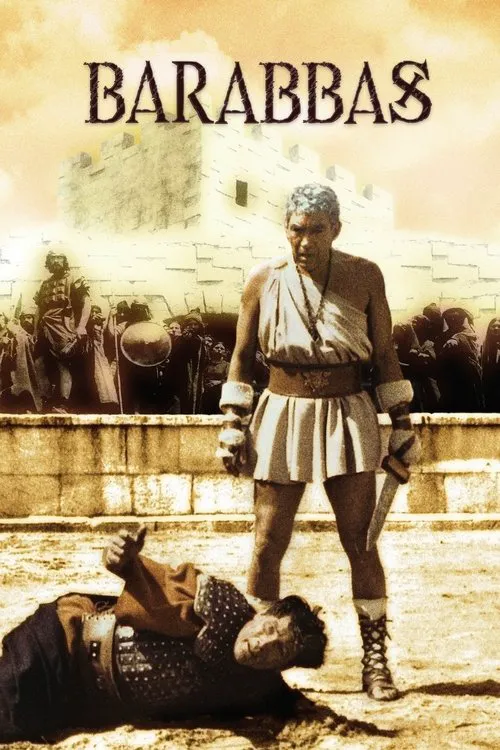Barabbas

Trama
The year is 33 AD, and the land of Judah is ablaze with tension as Roman rule suffocates the people. Amidst the chaos, Barabbas, a charismatic and cunning thief, lives a life of theft and rebellion against the oppressive authorities. With a reputation for bravery and cunning, he earns the admiration of the people, who view him as a hero and a symbol of resistance against the Roman Empire. As the narrative unfolds, we are introduced to a pivotal moment in history when Pontius Pilate, the Roman Prefect of Judah, holds a public spectacle where he offers the Israelites a choice to pardon either Barabbas, a notorious thief, or Jesus, a charismatic preacher who has captured the hearts of the people. Despite the overwhelming demand for Barabbas' release, Pilate ultimately pardons him, setting the stage for a chain of events that will forever change the course of his life. Barabbas' release is met with both relief and a sense of guilt, as he is forced to confront the implications of his freedom. His spiritual turmoil intensifies as he grapples with the moral ambiguity of his actions, and the fact that he was spared while Jesus, a man of great virtue and compassion, was condemned to a cruel death. This inner conflict sets him on a journey of self-discovery, as he struggles to reconcile his actions with the values he now holds dear. As Barabbas navigates the complexities of his newfound faith, he is met with resistance from those who have known him as a thief and a rebel. His family and colleagues, who once admired his bravery and cunning, now view him with suspicion and disdain. His relationship with his family is strained, and he is forced to confront the consequences of his past actions. In a bid to clear his conscience and find redemption, Barabbas decides to take up the offer of a mysterious stranger, who promises to guide him on a path of spiritual enlightenment. The stranger leads him to a secluded monastery, where Barabbas begins to learn the ways of the faith. Under the tutelage of a wise and compassionate monk, Barabbas embarks on a rigorous spiritual journey, which involves fasting, meditation, and self-reflection. As he delves deeper into his spiritual practice, Barabbas begins to confront the demons of his past. He grapples with the guilt of his past actions, and the sense of privilege that he feels after being spared while Jesus was condemned. His inner turmoil is heightened by the presence of a young woman, Rachel, who had once been his lover but is now married to another man. This rekindling of emotions forces Barabbas to confront the consequences of his choices, and the pain he had inflicted on those he loved. As Barabbas' spiritual journey reaches its climax, he is summoned to the great arena of Rome, where he is offered a chance to fight as a gladiator. Recognizing this as an opportunity to redeem himself, Barabbas seizes the challenge, determined to win his freedom and confront his inner demons. In a series of grueling combat scenes, Barabbas proves himself to be a formidable opponent, earning the admiration of the crowd and the respect of his opponents. However, it is not just physical strength that Barabbas requires to achieve his goal. As the stakes become increasingly high, he must also confront the inner demons that have haunted him throughout his journey. In a dramatic showdown with a seasoned gladiator, Barabbas must summon all his strength, courage, and faith to emerge victorious. Ultimately, Barabbas succeeds in winning his freedom, but the true test lies ahead. As he stands before the cheering crowd, basking in his triumph, he is forced to confront the question that has haunted him throughout his journey: what does it mean to be a follower of Jesus, who was condemned to death for crimes he did not commit? In a poignant moment of introspection, Barabbas realizes that true freedom lies not in physical liberation, but in spiritual liberation. He understands that he has been given a chance to make amends for his past mistakes, and to forge a new path, guided by the values of compassion, forgiveness, and love. As the curtain closes on Barabbas' epic journey, we are left with a sense of hope and redemption. Though he has faced numerous challenges and setbacks, Barabbas has emerged transformed, his heart filled with a newfound sense of purpose and direction. His story is a powerful testament to the redemptive power of faith, and the human spirit's capacity for growth, transformation, and forgiveness.
Reseñas
Recomendaciones




